#movie comparison
Text
Hey ya'll seen that one movie about this one kid

who finds something that should be considered dangerous and
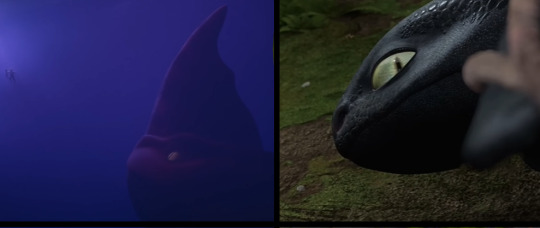
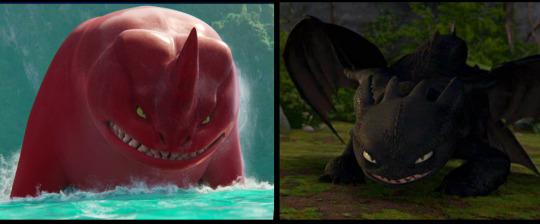
untamable
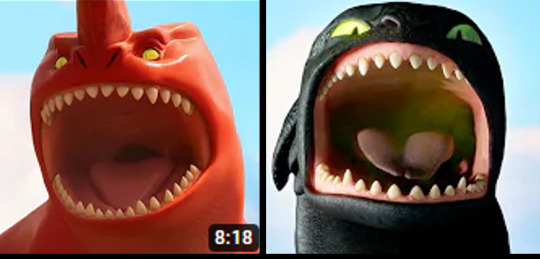
only for them to become friends with it
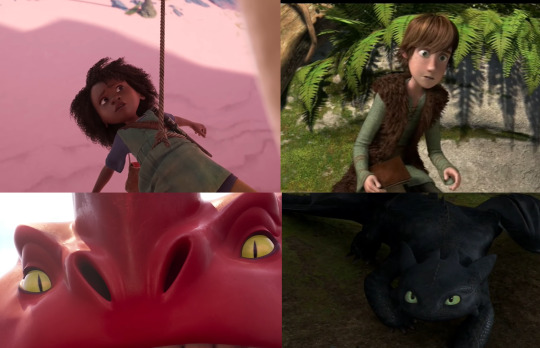


then get attacked so because of their bond it attacks to protect
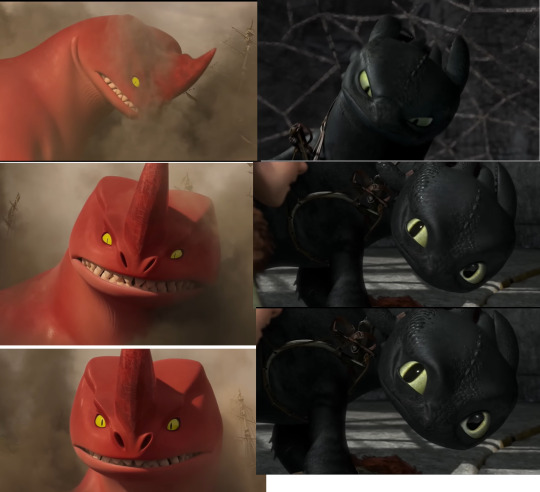
and then by the end of the movie their friendship is saved and now everyone knows the truth about the creature who is actually really nice
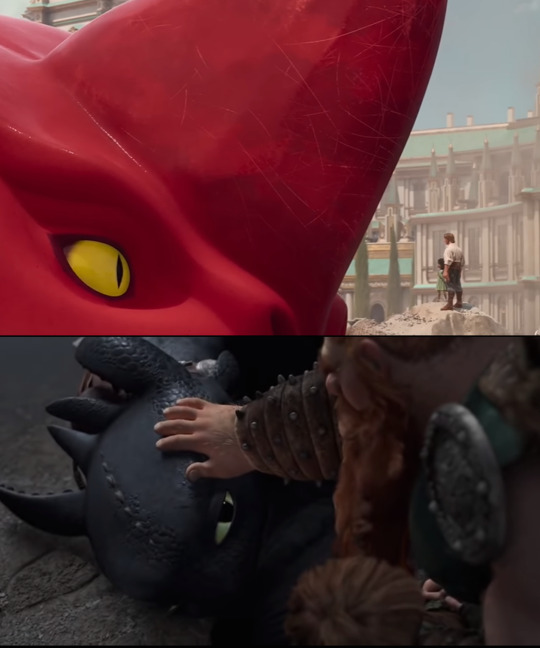
Yeah im talking about Lilo and Stitch!
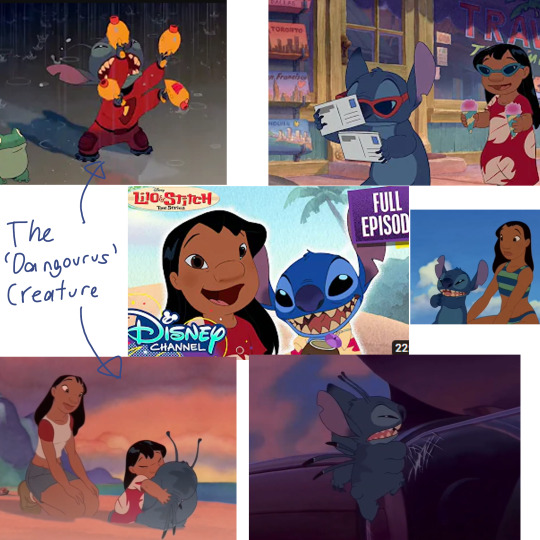
#httyd#hiccup haddock#toothless#sea beast#red sea beast#jacob holland#maisie brumble#movie comparison#they are the same#studies want you to find the difference between pictures#HA I GOTCHU#you thought I was talking about one of these two but NO FUCKING LILO AND STICH#both kids and animals do intense eye contact and head tilt#hiccup and toothless#maisie and red#stoick the vast
475 notes
·
View notes
Text
Perfect Blue, Black Swan, and Birdman
It is common knowledge that Perfect Blue and Black Swan have cinematic and thematic similarities. I'd like to argue Birdman (2014) shares just as much with these other two films. Outlined below are some of the most notable commonalities.
The Art Imitates Their Real Life:
This is the major narrative device shared by all three films. The protagonists are all artists playing a role in a performance; Mima: a TV actor, Nina: a ballerina, and Riggan: a thespian. They are unaware of how closely the plight of their characters mirrors their own struggles. While pushing themselves to perform better, the line between their reality and the story they are performing starts to blur.
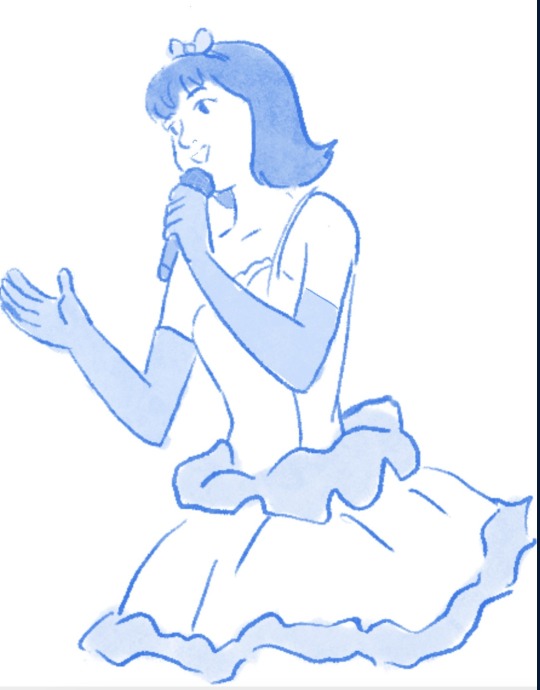
-Perfect Blue:
The Reality:
Mima is trying to make the leap from pop idol to actor. She has a “bit part” at first in the TV show Double Bind, but her manager Mr. Tadokoro campaigns for her to have more screen time. The producers agree, but it involves taking on a role that exploits her sexually. Mima's conflict with her old self and new self tear her apart. Those working on the show around her start getting murdered.
Notable moment: This scene especially highlights the overlap:
Mima is sitting in a chair with the doctor, it appears they are shooting a scene in Double Bind.
Doctor: Can you tell me your name?
Mima: Me? I'm Mima Kirigoe.
Doctor: Okay. And what do you do?
Mima: I'm a pop idol... no, an actress.
Doctor: That must be hard work.
Mima: It's hard, but it's what I chose to do.
We pull back to see detectives watching through a double-sided mirror.
Detective: She thinks she's a new young actress named Mima Kirigoe.
The doctor comes out and joins the detectives.
Doctor: Dissociative Identity Disorder. In other words, "multiple personality syndrome." All those crimes took place when she was some other persona.
Detective: So where's the persona of the original Yoko?
Doctor: Yoko Takakura, the original persona.....is nothing more than a character in a drama for her. Being a "normal" girl... how she was raped in a strip club. Everything happened as part of her drama series. By doing so, she salvaged her heart.
Mima presses her face into the mirror.
Mima: That's right. I'm an actress.
Director: Cut!
The footage rewinds. Mima is sitting in a chair with the doctor, it appears they are shooting a scene in Double Bind.
Doctor: Can you tell me your name?
Mima: Me? I'm Rika Takakura.
The doctor comes out and joins the detectives.
Doctor: The original persona, Yoko Takakura, no longer exists. By killing, and later becoming, her sister the top model, she salvaged her heart.
Mima presses her face into the mirror.
Mima: That's right. I'm a model.
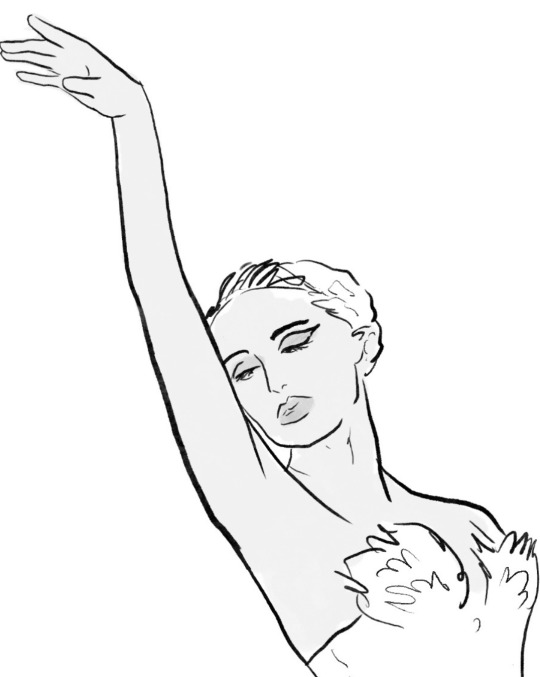
-Black Swan:
The Story:
Thomas: We all know the story: virginal girl, pure and sweet, trapped in the body of a swan (Odette). She desires freedom, but only true love can break the spell. Her wish is granted in the form of a prince (Sigfried). But before he can declare his love, her lustful twin, the Black Swan (Odile) tricks and seduces him. Devastated, the White Swan leaps off a cliff, killing herself. But, in death, finds freedom.”
The Reality: Nina is auditioning for the lead role in Swan Lake, a dual performance as White Swan and Black Swan. In an out-of-character moment, she wins over the director Thomas, and lands the role. A fellow ballerina, Lily, visually similar but a dancer in every way Nina is not, catches the eye of Thomas and to a lesser extent, the man playing the actual prince. Nina isn’t interested in the prince, but it’s still a blow to her ego. At the end of opening night she likely dies of a self-inflicted wound.
Notable moments:
1) In the ballet (but not featured in the film’s adaptation), there is a ball for the prince with all the eligible bachelorettes in the kingdom. At this point, the prince has already met Odette at the magic lake, but before she can arrive, Rothbart's (Evil Sorcerer, the reason Odette is a swan) daughter Odile appears disguised as Odette and tricks him into falling in love with her.
In the film, this is recreated by Lily stepping in for Nina when she oversleeps one morning. She plays Nina’s role beautifully, and Thomas finds himself moved by her performance. When Nina arrives and takes back performing her role, she sees Thomas’s eyes stray from watching her to look at Lily.
2) Thomas shouts this to Nina as she rehearses the finale:
Thomas: The Final Act. Your Final Dance. You’ve tasted your dream. Touched it. Only to have it crushed. Your heart is broken, wounded. Your lifeforce fading. The blood drips. The Black Swan has stolen your love. There's only one way to end the pain. You're not at all fearful. Filled with acceptance. You look down at Rothbart, and then at the Prince, and, yes, up at the audience...And jump!”
This is foreshadowing the finale of the ballet and the events of the film. Nina, in full delusion, thinks she’s tussled with and killed Lily in her dressing room, but has actually stabbed herself with glass. With the shard deep in her own belly, Nina performs the finale, gracefully gesturing to her prince, Rothbart, and her mother, every line Thomas shouted to her all the more true. Then she jumps.
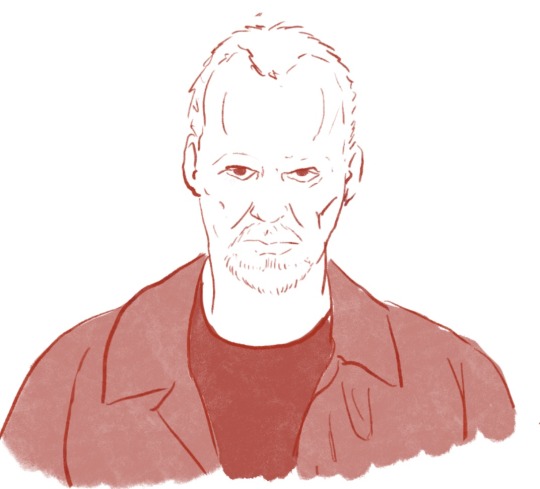
-Birdman
The Reality: Riggan confuses adoration with love, but in many ways so do his fellow actors, all craving a similar validation through acting. Off the stage, their lives are messy, especially their romantic ones. Most off-stage conversations are often philosophical ones.
Riggan's is the least obvious because the source material is lesser known and less developed to the audience, but the story he's performing as a whole doesn't matter so much. Mike even comments in a fit during their first preview about how Riggan's adapted the work. (Riggan is the writer, producer, and star)
Mike: This is Carver, man! The guy lost a piece of liver every time he wrote a page! If I’m supposed to drink gin then bring me fuckin gin! I mean, you fucked the time period! You took all the good lines for yourself!"
The scenes chosen for us to see demonstrate the clear overlap between “What We Talk About When We Talk About Love" and Riggan's life.
Notable examples:
1) Riggan’s girlfriend and fellow performer Laura’s character has a monologue in the play:
Laura: In the days before Nick’s depression really started to eat away at him, he had no idea I was pregnant. And I never intended on telling him. I guess we make choices in life, and we choose to live with them. Or not. I didn’t want that baby... Not because I didn’t love Nick. And not because I didn’t love the-- The idea of it. But because I just wasn’t ready to love myself.
Before we see her perform this the first time, Laura tells Riggan she might be pregnant. The second time is after she confirms she is not. Laura wants a baby, but based on Riggan’s reaction he isn’t into it.
2) Riggan (as Ed) barges in on Lesley (as Terri) and Mike (as Mel) in a hotel room. Terri left Ed for Mel and Ed has hunted them down to confront his ex.
Riggan: What's wrong with me? Why do I end up having to beg people to love me?
Lesley: Ed. Eddie. Please... Give me the gun. Just look at me. I was drowning. I was not capable of-- You deserve to be loved. You do.
Riggan: I just wanted to be what you wanted. Now I spend every fucking minute praying to be someone else. Someone I'm not. Anyone…
This scene from the play is portrayed as the finale, and we see it performed three times. Riggan is desperate in his quest for love and validation, unaware that he is searching for it in the wrong places, like chasing after an old lover. It's relevant that Mike is his ex's new lover (in the play). Riggan is envious of him, his acting ability, and the respect and notoriety he has in the industry. Also, how he can quickly connect with his daughter (who Riggan is somewhat estranged from).
In the play, Ed at first wants to kill his wife's lover Mel, and maybe his ex-wife, but in the end he turns the gun on himself. On opening night Riggan uses a real gun and shoots himself in the head.
The Shadow Self:
-Perfect Blue: A pop Idol was something Mima strived to be, but her group CHAM is stagnant. Mima, with the encouragement of one of her managers, decides to change careers to be an actress. It’s unclear how much of it was Mima’s idea, but she commits. Mima privately struggles through this change, and the chorus of upset fans and doubtful industry folks don't help. This triggers Mima’s "old self” AKA "Pop Idol Mima" to start appearing, often during moments when Mima struggles with the sexual aspects of her new career. Pop Idol Mima is forever in her frilly pink get-up from the opening number of the film, frozen in time, perfect and pure. Pop Idol Mima resists and criticizes Mimi’s changes.
It isn’t revealed until the end of the film that Mima’s “shadow” is one of her agents, Rumi. This is in regards to the “Mima” that is communicating to her stalker and controlling the content of the website “Mima’s room.” Together they post intimate details and thoughts from “Mima” herself. The apparition of Pop Idol Mima she sees following her is only Rumi some of the time and mostly is Mima hallucinating in moments of emotional distress.
-Black Swan: It’s not a coincidence that Nina, dressed in pastels and a white feathery scarf, spies a woman on the train who looks just like her, but in black, on her way to the first day of the new ballet season. We are actually seeing Lily (Mia Kunis, a fellow dancer) for the first time on the train, but this is also the moment when Nina sees her first glimpse of "Black Swan Nina", the part of herself that she is not in touch with.
Nina is challenged to find her inner black swan, because as the lead she must play both the white and black swan characters. As she pushes herself, she sees Black Swan Nina inflicting self-harm, on the faces of other dancers or Lily. The lines between Lily and Black Swan Nina are often blurred, but there is doubt as to whether she's even seeing Lily during Black Swan Nina moments.
-Birdman: Right away we hear the gravelly voice of Birdman talking to Riggan, but we don’t know who it is yet. Birdman is the superhero character he is most famous for playing. Birdman berates him over his choice to leave the role behind throughout the film, enticing him to get some plastic surgery, work out, and get back into the suit to start making real money again. Birdman openly acknowledges that he is a voice in Riggan’s head, only physically appearing twice in the movie in moments where Riggan is most in his delusions and imagining he can fly.
The Rival / The Double:
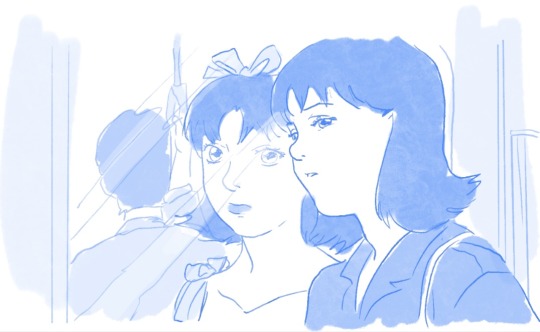
-Perfect Blue: Mima’s rival is mostly her shadow self, Pop Idol Mima. In the acting world, she has no one she is directly competing with. Her former bandmates are doing better since Mima left, and that wounds her, but she is trying to leave that life behind. As mentioned, Pop Idol Mima is sometimes Rumi, who is competing with Mima. Rumi is envious Mima got more famous than she ever did as a pop idol, and links Mima's success with her own, so when Mima decides to leave being a pop idol, Rumi takes it as a very personal betrayal.
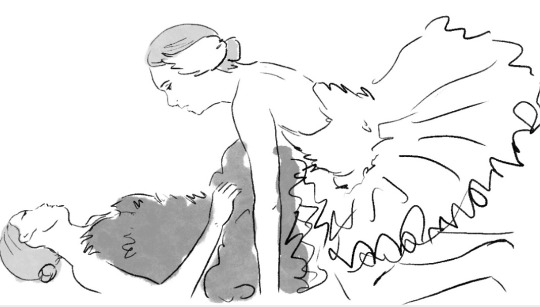
-Black Swan: It’s a new season and Lily, a dancer in the ballet who possesses similar physical attributes to Nina but embodies the effortless freedom Nina lacks, joins the troop. Nina has struggled for everything she has achieved. We see how regimented her life is, how micro-managed her eating is, and the physical toll ballet takes on her body. Whereas Lily comes in late and doesn’t need to warm up, even after a night of partying. She climbs up the ranks quickly with her magnetic ease.
Lily becomes all the more a threat when she is made Nina’s understudy. When Nina is late, she steps in and performs both parts in a way Nina could only dream of. Lily catches the eye of the director Thomas and the man playing the part of the Swan prince. Nina is more upset about Thomas, but she is frustrated because she has no chemistry with her prince whereas Lily does.

-Birdman: After Riggan’s co-star gets hit in the head with a stage light (maybe on purpose), Mike, (Edward Norton) is brought onto the project, injecting excitement into the crew and prospective audience. Mike is renowned in the business for eating, sleeping, and breathing “the stage.” Life is a stage to Mike, and he may just be full of shit, but he is what Riggan wants to be seen as.
Mike gets more interested in the project and even helps Riggan punch up the script, but it quickly becomes clear Mike is in it for himself. In the first preview Mike throws a drunken tantrum when Riggan takes away his real booze on stage. During the next performance Mike tries to have actual sex on stage with his girlfriend and has a very real boner for all to see in the last scene. He even steals Riggan's tale of why he's doing this play (a childhood encounter with Carver) and tells it in an interview.
The Antagonist:
Who is pushing our protagonist, and who doubts them?
-Perfect Blue: Mr. Mi-Mania is Mima’s biggest fan. When Mima makes the career change, he does not accept it and is encouraged by the “true Mima”(Pop Idol Mima) to save her from the industry folks pushing her on the new career path and tarnishing her image. He does this by murdering some of the people working around Mima.
-Black Swan: Thomas, the director, would have chosen Nina to be the star if she was only playing the white swan. Nina does sway Thomas to give her the role, but he relentlessly pushes Nina on and off the stage to give him the unrestrained performance he wants for the black swan.
-Birdman: The critic Tabitha Dickinson is the word in theater, with her opinion making or breaking a play. She loathes Riggan for thinking he can just waltz onto Broadway from playing a superhero in order to write, produce, and star in his own production. She vows to write a bad review regardless of what she sees opening night.
The Old You:
Perfect Blue and Birdman are more obviously similar because their “old self” was a very different public persona. Mima was a pop idol, and Riggan was a blockbuster superhero. They were so well known for these roles and the image associated with them that they struggled for their professional peers and fans to see them in a more serious light.
Nina is staying within her profession, but she is trying to make the move from being a girl in the chorus to playing the lead. And this year the lead ballerina must play two characters who are in stark contrast with each other. Nina is perfect for the innocent White Swan, but she must also embody the seductive Black Swan. Her colleagues are doubtful she can play the Black Swan, a temptress who steals the prince away. Her mother also wants to keep her in "White Swan Mode" as a completely codependent child, lamenting "What happened to my sweet girl?" at one point as Nina begins to rebel, exploring independence and sexuality.
-Perfect Blue: Pop Idol to actress.
-Black Swan: Chorus to star / White Swan to Black Swan.
-Birdman: Action movie star to stage actor.
The Death Bow:
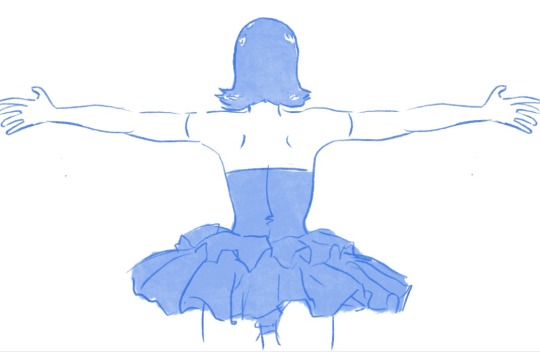
-Perfect Blue: Rumi, in full Pop Idol Mima delusion, hunts Mima down to kill her because there can only be one "Mima." After a brutal struggle in an alley, Rumi is stabbed in the stomach by a glass shard while retrieving her wig. Rumi then staggers into the streets and puts her wig back on. An oncoming truck's lights deceive Rumi into thinking she's in the spotlight with all her fans cheering. Envisioning herself as Mima, she joyfully soaks it in, before the real Mima pushes her out of the way to safety.
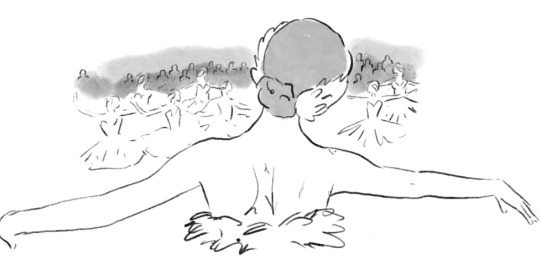
-Black Swan: Opening night, Nina performs the finale perfectly, but we see in the climactic moment before she dives off stage that the wound she inflicted on herself is very real and all the more fatal because of her strenuous final performance. After she dives onto the mattress everyone rushes to her side to congratulate her. The crowd cheers, and her colleagues come to congratulate her. They notice her injury and are distressed. Nina doesn’t care, she looks up into the stage lights, blissed out, everything goes white. Perhaps she is starting to pass out or die. The cheering continues.
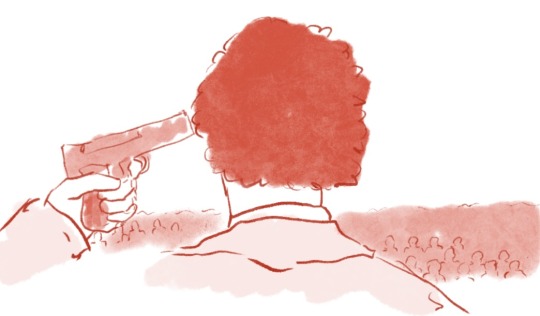
-Birdman: Riggan’s character Ed is in utter despair after breaking into his ex-wife's hotel room and finding her with another man. She says she doesn't love him anymore. Throughout rehearsals, Mike has pressed Riggan for realness, complaining about everything from the booze to the gun on the set being fake. On opening night Riggan has a real gun. Ed is supposed to turn the gun on himself, but Riggan hasn’t made up his mind on who to shoot yet. He feints shooting Mike, then the audience, but he settles on himself. The audience at first is blown away by his performance, giving him a standing ovation only to realize it's very real.
Mortal Wound:
All three protagonists are severely wounded. Nina and Riggan's "mortal wound" leads to their “death bow”, but in Perfect Blue it is Mima's “double/shadow-self” manager Rumi who is deluded in that final moment.
-Perfect Blue: Rumi tries to kill Mima, and stabs her in the side with an umbrella. Mima is only saved after tearing off Rumi's wig. Distressed, Rumi bends over broken glass to retrieve it, stabbing herself in the stomach.
-Black Swan: Nina tussles with Lily in her dressing room, thinking Lily is trying to take over the lead role. They shatter a mirror, and Nina stabs Lily in the guts with a big shard. However, it was all a hallucination: Nina stabbed herself. The show must go on, so Nina finishes the performance brilliantly. We don't know what happens to Nina afterward.
-Birdman: Riggan is supposed to pretend to shoot himself in the play, but on opening night he intentionally uses a real gun. This doesn't kill him, but in the hospital Riggan likely commits suicide by jumping out a window.
Hollowness Of Fame:
-Perfect Blue: The world of pop idols was just as critical of a woman's appearance and behavior as it is for actresses. The constant feedback from the public's expectations of who she is and should be almost causes Mima to completely lose her sense of self.
-Black Swan: All the girls in the troop want to be the prima ballerina and once Nina has this part she sees the dark and fleeting side of this coveted role through the character Beth. The audience wants someone new and fresh and when they are tired of you or you're considered too old, you are quickly cast aside.
-Birdman: Riggan is desperate for public recognition. How he wants to receive it has changed. It used to be through his blockbuster movies, but now he wants to be seen as a stage actor. He values fame over his relationships. In a scene where his ex-wife comes to talk to him about their daughter, Riggan gets sidetracked telling this story:
RIGGAN: The last time I flew here from LA, George Clooney was sitting two seats in front of me. With those cufflinks, and that... chin. We ended up flying through this really bad storm. The plane started to rattle and shake, and everyone on board was crying... and praying. And I just sat there-- Sat there thinking that when Sam opened that paper it was going to be Clooney's face on the front page. Not mine.
What Do You Really Want?:
The three protagonists are trying to achieve "greatness" in their career field, but what deeper need is this success trying to fill? What does the character actually want?
-Perfect Blue: Mima wants to find herself.
Mima doesn't start the film wanting this, but when she starts to lose her identity she realizes how important it is to her. The finale scene of the movie catches up with Mima sometime in the future. Her hair is longer and her clothes more fashionable and mature. She has just finished visiting Rumi, who rarely returns to that personality. Two nurses whisper that the person they see looks like the actress Mima Kirigoe, but that she has to be a look-a-like. Mima gets into her car, looks into the mirror, sees her reflection, and to the audience says, "No, I'm real!"
This is a hard-earned moment because Mima lost her sense of self. It was only until her final struggle with Rumi that she realized:
Rumi: We don't need two Mimas!
Mima: I AM MIMA!
Rumi: That's funny! Mima is a pop idol! You're just a dirty old impostor!
Mima: LIKE I CARE! I AM WHO I AM!!
Mima in this moment finally stops attaching her sense of self to her career.
-Black Swan: Nina wants to be perfect.
Nina starts the movie and ends the movie with this desire. When Nina finally ”kills" the part of her holding herself back and finds the black swan, she dances uninhibited and free as both the black and white swan, a performance unmatched. She takes her final leap as the white swan. This may be Nina's last performance because she has severely wounded herself. “It was perfect” is the last thing she mutters. Nina learns, tragically, what it takes to be "perfect."
-Birdman: Riggan thinks he wants fame and adoration, but it’s actually love.
Riggan is addicted to these two things. They are his biggest temptations to play Birdman again. Birdman is constantly pointing out which celebrities are doing superhero movies and how much money they are making. But Riggan resists, hoping to get the fame and adoration he craves through the theater instead, an art much more highly regarded. Before Riggan's opening night, his ex-wife points out that he confuses adoration with love. At the end of the film, in the hospital where Riggan is recovering from shooting himself on stage, he at last has the fame and adoration he was desperate to gain. However, it doesn't heal him because it’s not actual love.
Delusions:
Along with “seeing” their shadow self, each protagonist has another destructive delusion.
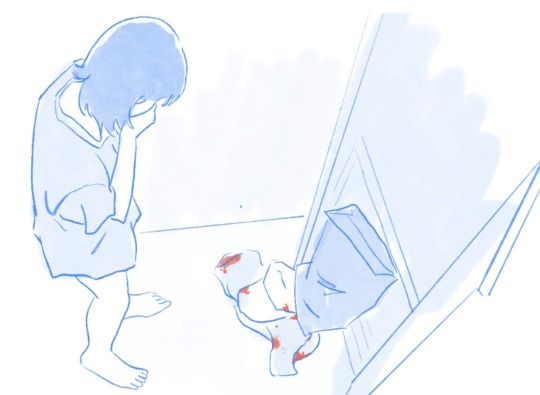
-Perfect Blue: The lines between the murders occurring in the show Double Bind and the actual deaths of those involved in the production get very murky. Is Nina dreaming she's killing people or is she actually the culprit?
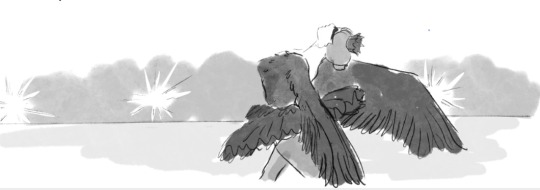
-Black Swan: Nina’s coping mechanism for the emotional and physical stress she endures is picking and scratching at her skin. As she loses control more and more, her picking becomes more intense and the reality of what's going on with her body gets murky. What starts as a little picking at a hangnail turns into Nina pulling the skin off down her finger. The itchy skin on her back turns into budding feathers. Is she turning into the black swan?

-Birdman: The opening shot of the film has Riggan sitting cross-legged in his underwear meditatively floating. Throughout the film Riggan imagines he has telekinesis, bringing objects closer to him and possibly making a light fall and injure the costar he wanted to get rid of. In one scene he runs off a rooftop and flies away, landing outside the theater. An angry cab driver yells at him to pay his fare.
My Music:
Our three protagonists have and are aware of their leitmotifs.
-Perfect Blue: Mima is going to make a special appearance with CHAM, but before the event she has a shoot with a photographer who presses her into a much more revealing session. This causes Mima a lot of distress, so Pop Idol Mima appears and says she’ll take over. She joins CHAM dressed in her frilly outfit and does the choreography and lip sync for "Angel of Love" (The CHAM song the movie opens with) instead of performing the actual song being played.
It’s a little different from the other two films, but Mima is synonymous with"Angel of Love." It’s also blasted on a boombox when the writer for Double Bind is murdered.
-Black Swan: Nina oversleeps for rehearsal and her mother doesn’t wake her up. When she arrives, she hears the white swan's music playing, commenting to herself “My music?” and is startled to see Lily has stepped in to perform her part. It wounds Nina to see another girl dancing to her music.
-Birdman: After Riggan spends a drunken night on the street he wakes the next morning to Birdman pumping him up. Riggan imagines he’s in a Birdman movie and blockbuster explosions and a giant bird robot appear in the background. He makes it to a rooftop and he cues the music by muttering “Music.” As his overture starts to play, Riggan, lost in his delusions, “flies” off the building.
Who You Could Become:
Should the character fail or lose their way, there is a reminder or warning of what their possible future could look like.
-Perfect Blue: Rumi, a bitter ex-pop idol turned agent who never got over her “failure” to make it to the top. Rumi projects herself on Mima, seeing her as everything Rumi had hoped to be. Rumi takes Mima's career change as a personal betrayal.
-Black Swan: Beth, the former Prima Ballerina whom Nina looks up to. She was Thomas's star, his "Little Princess," but the industry is cruel and women age out of "star" material quickly. Heartbroken by the forced ending of her career and loss of Thomas’ affection, Beth self-destructs.
Nina's mother is another glimpse at her possible fate. Her career was cut short because she got pregnant, but we don't know if she was ever on track to being a star. Nina's mother put all her energy and hope into her daughter's career as a ballerina, but also resents her successes.
-Riggan: There is not a specific character in Birdman who represents the fate that could befall him, but the threat of failure is just as present as in the other two films. Riggan’s play could flop, no one could take him seriously as a stage actor, he could lose all the money he invested, his daughter could lose even more respect for him, and he could become more of a has-been than ever.
A Sapphic Element:
Take this one lightly, but all three have it! Black Swan explores this in much more depth, whereas Perfect Blue’s and Birdman’s have it just kinda tossed in.

-Perfect Blue: During the initial scene discussion of Mima’s career change it starts with a clip of Mima acting. She is in bed, another woman in lingerie crawls towards her, and Mima then anguishes "I can’t do this!”
-Black Swan: Nina has been kept a child by her mother. As she dances the Black Swan more and more, she starts exploring her sexuality. While she is attracted to Thomas, she is also drawn to Lily. Does Nina want to be Lily or be with Lily? Nina even has a wet dream about the other girl.
Birdman: Laura, Riggan’s girlfriend and fellow actor, comments that their co-star Lesley has a perfect ass. After Mike tries to have sex with Lesley onstage, a distressed Lesly is comforted by Laura, who makes a pass at her which isn’t rebuffed.
Some Birdman and Black Swan only:
Birds:
A bit obvious, but Birdman and Blackswan both reference birds in their titles and stories.
-Black Swan: Nina is performing the story of Swan Lake, which is about a pure maiden who is transformed into a swan. Nina can easily play this part; her transformation is in embodying the black swan. Nina begins to have hallucinations that she is physically becoming the black swan throughout the film: pulling feathers out of her back, her legs bending wrong, and her neck growing into the shape of a bird's. When she finally finds the character in her performance, Nina envisions herself growing black wings, the transformation complete.
The narrative embraces the symbol of flight and freedom associated with birds. In one scene Riggen looks to be attempting suicide from the roof of a building, and we see him run off and fly away. He lives in the moment, soaring over the city and touching down in front of the theater. At the end of the film, Riggan does jump from his hospital window, but his daughter looks up to the sky and smiles as if he truly took flight. Also noteworthy: after Riggan shoots himself in the face, blowing his nose off, his face cast looks similar to his Birdman mask.
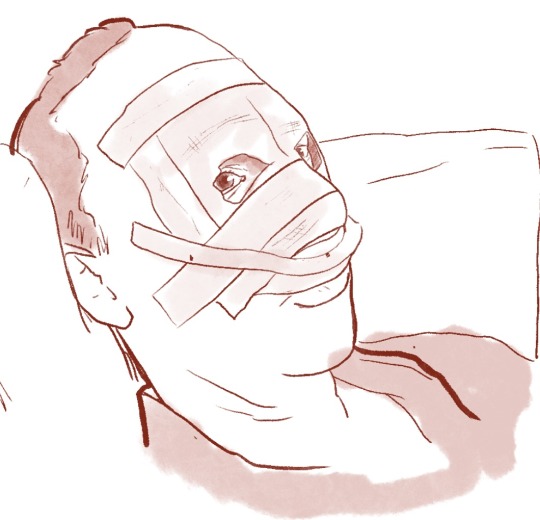
The Protagonist Catches Their Double Coping A Feel Backstage:
It’s their big night, but the double is having all the fun.
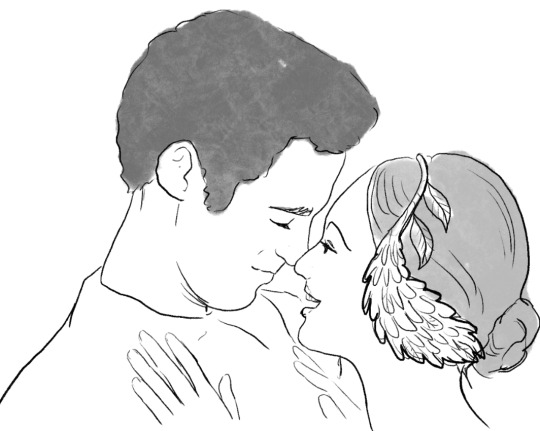
-Black Swan: It’s opening night. Nina and her Prince do an elegant performance together but as soon as they reach backstage the Prince immediately distances himself from her. There is no affection between them. While Nina waits for her next moment on stage she sees the Prince with Lily, and Lily cops a feel of his package.
-Birdman: Riggan is preparing to go on stage. He spies Mike coming to the back of the stage, Riggan’s daughter Sam in his arms. They are happy and at ease in each other’s arms, and they kiss.

Hope you enjoyed my little comparison! Let me know what ya'll think!
Thank you Cal for editing!
-Julia
#black swan#birdman#perfect blue#comparison#Darren Aronofsky#satoshi kon#movie comparison#essay#Alejandro González Iñárritu
49 notes
·
View notes
Text
If I had a nickel for every time...
1. A much older man
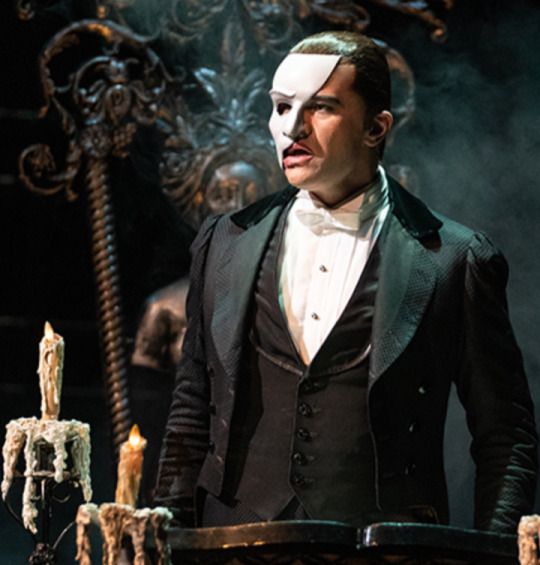
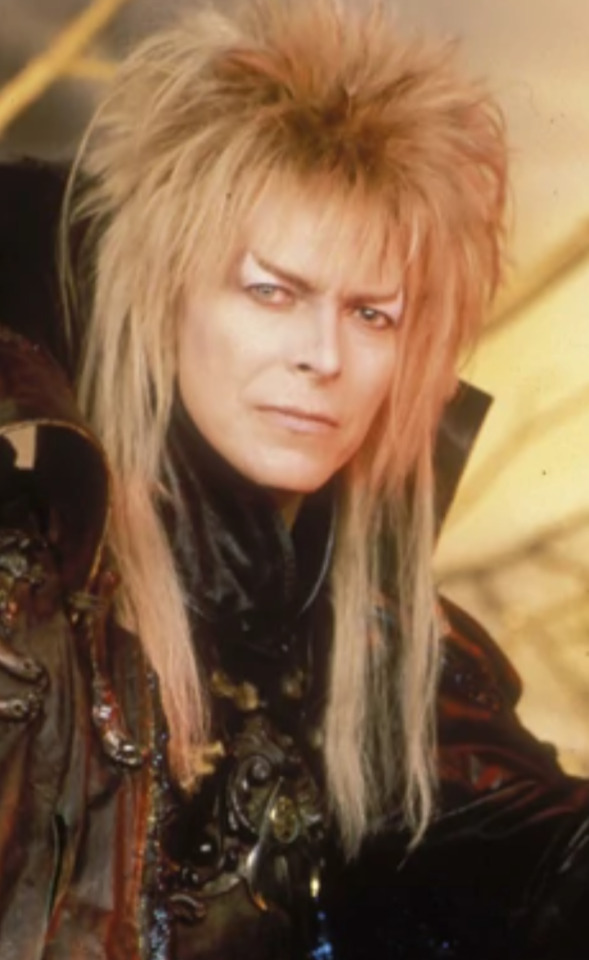
2. Who rules over a place with an iron fist

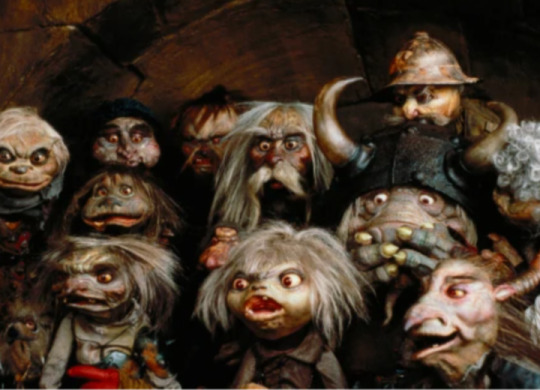
3. Tries to woo a young brunet girl
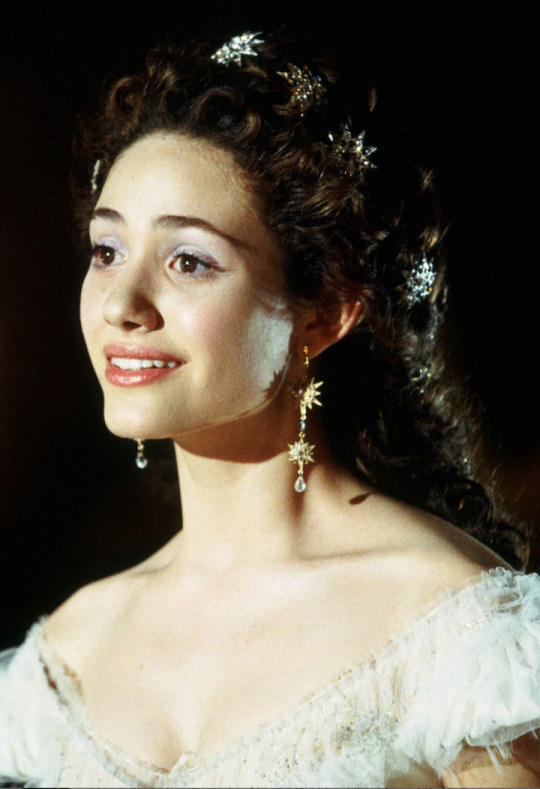

4. With music, magic and mystery, he is very good at it!
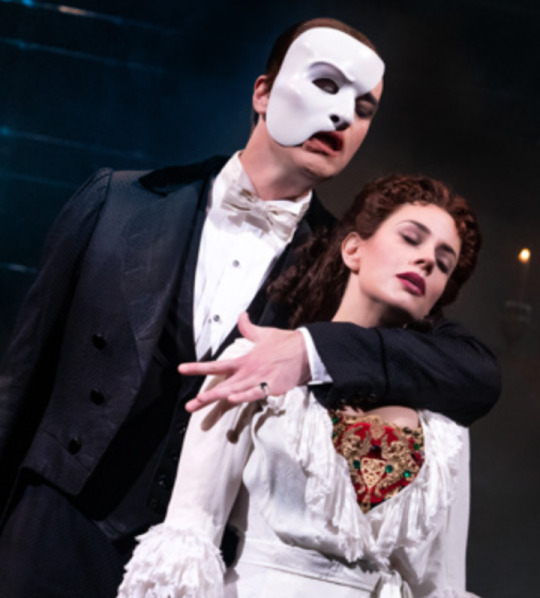

5. Where he also brings her to his domain full of traps and danger!

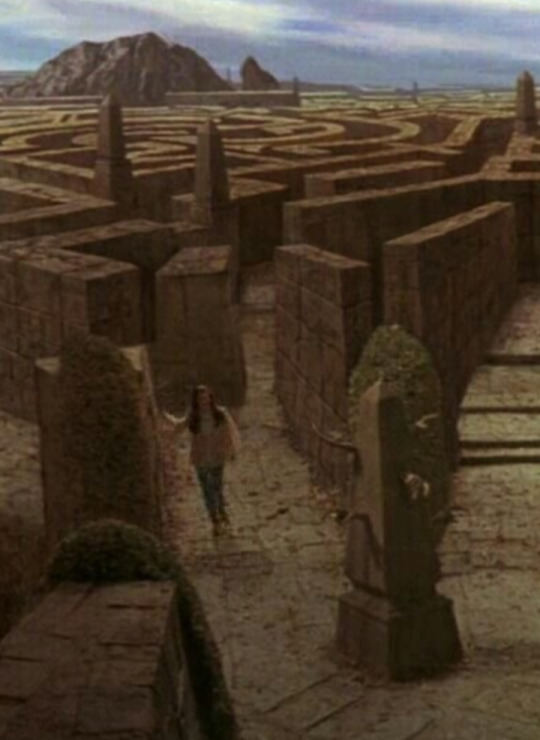
Part 6-11 in the reposts!
#labrynth#labrynth memes#labrynth meme#jareth#jareth the goblin king#sarah williams#phantom of the opera#poto#phantom of the opera memes#phantom of the opera meme#comparison#movie comparison#if i had a nickel#erik#christine daae#christine#christine daaé
505 notes
·
View notes
Text
How to Portray Real Love - and How Not to
Warning: long post.
Call Me by Your Name (2017)
To anyone who loves this movie:
I will not apologize for what I am going to write. It’s my own take, yes, but in my opinion all of this ought to be obvious to anyone watching the movie.
I will not refer to André Aciman’s book, not having read it.
I am Italian and I grew up in places like we see in the movie. I’m not denying that the way it’s shot and the general atmosphere are often gorgeous, but that was not sufficient to convince me that this movie is romantic, probably because I’m used to it.
What This is Not: Grooming / Sexual Predation
Reading up reactions to this movie, I have stumbled often over criticism about the age gap between the two protagonists. In my opinion this is beside the point: we are speaking of 7 years, not of a generational gap, and Oliver is still a student. Elio is mature for his age, and after some initial reticence, he approaches Oliver by himself over and over. His family knows and encourages (or at least doesn't oppose) them, and Elio has more than one opportunity to say no, which he doesn’t take.
Oliver is not a predator. He’s confused, but that’s not because he doesn't feel the attraction between himself and Elio: he simply doesn’t understand it.
Elephant in the room no. 1: Oliver is a bad person.
Oliver comes across as irreverent and self-absorbed. He does not respect boundaries, does not knock on doors, does not fit in with the lifestyle and customs of his hosts, only occasionally he does things that will make people think well of him. Early in their acquaintance he expects Elio to tell him what he is going on in his head but doesn't do the same in return (he never does, even later); his entire behaviour seems to be aimed at irritating and challenging his surroundings.
There is no depth in Oliver, no creativity, contrarily to Elio who already composes at age 17; somehow Oliver seems to know that he is the inferior one. At times he is downright offensive to Elio, for no reason at all, like he wasn’t a guest in their house. Oliver moves around in a foreign place like everybody owes him; he does not wonder, question, ask for explanations. He plays with Elio’s youthful insecurity, who is still hardly shaving and feels in the shadow of Oliver’s allegedly superior manliness. It is not surprising that to Elio he soon appears as some kind of handsome, unreachable prince.
Oliver is the kind of person who manages, on purpose or not, to convince the people around him that he is someone special, irresistible, and that being his friend or lover is a privilege. Elio falls for it, and Oliver picks the fruit of that attraction. Oliver does not love Elio because he does not love anyone, being too busy with thinking of himself.
At first Elio doesn’t like him; he notices that although Oliver never shows regard for anyone, he gets away with it. Elio’s family and friends fall for his self-assuredness and expect him to befriend Oliver. Piqued by the fact that Elio is the only person who is wary around him (with good reason!), Oliver repeatedly behaves in a way that frustrates Elio, repeatedly invading his private space, ignoring his limits, alternating insults with niceties, giving him attention one minute and completely ignoring him the next. And he never seems scheming picking at Elio’s insecurities whenever he gets a pass: it’s like second nature to him. He doesn’t do it because he loves Elio and doesn’t want to admit it, because he’s scared or something like that; he does it because he can, and because it works. He wants Elio to look up to him the way everybody does. After a while, the insecure Elio gets obsessed with wanting the older man’s approval.
Oliver starts a relationship with Elio knowing that the younger man has a girlfriend; he doesn’t even ask about her, whether Elio broke up with her etc. Oliver seems to believe that Elio owes him his undivided attention. By keeping their relationship a secret, Oliver makes the hapless Elio his accomplice. Even if he wanted to or if he would slowly begin to suspect that something's not right, he couldn’t talk to anyone about it. No one would believe him anyway, since everybody thinks the world of Oliver.
Oliver humiliates Elio, who by then is his lover, when he finds out about the peach: he laughs at him, not with him. (Why was Elio masturbating anyway, while he was in a sexual relationship?) When they are in Bergamo Oliver starts partying with random strangers on the street (with a woman!) when Elio is about to be sick: an observant lover would have noticed it before it was too late. Although they live under the same roof, he never sleeps in the same bed with him but gets up earlier, even when they are sharing a hotel room. He never tells Elio what is making him refrain from intimacy.
Oliver destroys Elio’s creativity by commenting negatively both on his composition and his impassioned love letter; we never see the young man making music or writing again. Shouldn’t a person in requited love feel inspired and happy and want to sing and play all day long? That he gives up on his interests already foreshadows the deep depression Elio is destined to fall into.
Viewers who love this movie like to argue that Oliver is so distant because he’s afraid of hurting Elio or shy because he’s in the closet. But it’s plain to see that Oliver knows exactly what he’s doing. He just doesn’t understand why because he’s not the kind of person who second-guesses himself. He’s controlling a power play with a younger man, probably because he doesn’t know how to have a genuine relationship with anyone. And Elio is too defenceless against him. When his mother comes to pick him up at the railway station and his voice breaks on the phone, it is obvious what a child Elio still is interiorly. He didn’t grow up through this relationship. He didn’t know what he was getting into and then had to pay the full price for another man’s egotism.
As the movie comes to a close, we can see that what he and Elio shared did hit Oliver harder than he had expected, but not enough for him to change, or only to reflect about it. Oliver is not aware of what he’s doing to Elio; to him everything is fun and games while to Elio it’s a life-changing experience.

Elephant in the room no. 2: Elio is not in love, he’s hooked.
Elio begins to imitate Oliver like a younger brother would do with the older - he smokes, wears a Jewish symbol on a chain, he has sex with Marzia only to prove a point because he knows Oliver had sex with Chiara. After a while, he gets obsessed with wanting the older man’s approval, for him to see him as an equal instead of an annoying boy he can either ignore or boss around.
Being both intellectual and highly sensitive, Elio believes that the more experienced and seemingly more mature Oliver must know the answers to life’s most burning questions; which Oliver doesn’t, as much as Elio wishes he would.
There isn’t the slightest sign of genuine love coming from Oliver; he only takes. Elio, being a giving, honest person, falls into a trap. Oliver has caught Elio and also half a dozen other people in his net, but he never had the slightest intention to put his roots down and actually like anyone back. Oliver’s attitude towards Elio is avoidant, but that is not because he wants to prevent him or himself from getting hurt; it’s because he doesn’t want to get attached and have to face the consequences.
In the scene where we first see Oliver interact with the family, he says at breakfast that he shouldn’t eat an egg because otherwise he’ll eat two, three, and more until they will have to roll him away. This already shows what kind of person Oliver is: he doesn’t know when to stop. Elio mistakenly believes that this lack of restrain, this want of limits is a sign of superior maturity and self-assuredness. He won’t realize to the last that in truth this attitude shows nothing short of a total lack of responsibility.
Elio says so to his father once: he does not play poker. Oliver is a poker player through and through. Despite the poetic request to “call him by his name”, Oliver remains shrouded in mystery. He does not change; while Elio wakes up, both sexually and emotionally.
There also is the symbolism: the dying fish gasping its least breath with eyes wide open (symbolizing Elio), the bronze statue, beautiful but cold and lifeless (symbolizing Oliver). The connection is made by the fact that both tokens come from the water.

All Oliver wanted and expected was to spend a good time in Italy with no strings attached. Which also is why we hardly see him working and studying, the way he’s supposed to. After all he did to Elio, his final revelation that he has a girlfriend and is about to marry her is only the coup de grâce.
Elephant in the room no. 3: Elio’s father is a fool.
I couldn’t bring myself to admire Elio’s father for what he said to his son, presumably wanting to comfort him: that “it had been a particularly beautiful thing between them”, and “he wished he would have made such an experience.”
How does he know what happened in detail? Does he know what is in these two young men’s hearts? Does he know about the humiliations Oliver inflicted on Elio? Probably not, but in any case, Oliver has given him no reason to believe that he’s a good person the way he claims.
We did not see father and son interact at all before this scene. All we learn is that both Elio’s parents expect their son to be nice to their guest and to befriend him, and that they don’t mind if there is more than friendship. We never learn whether Elio’s father loves him and cares for him (at least his mother shows affection from time to time). Imagine needing to have your entire world and happiness destroyed just so your father will finally give you some attention and kindness.
Elio’s father never changes his mind, even when he learns that Oliver is getting married. A caring, responsible father would have opened his son’s eyes about the fact that he was used and then discarded. I have no clue as to why any queer person would want their parent to do anything like that to them, leaving their heart open to bleed.
Add to this that he does not ask whether they used protection. The movie is set in 1983, and the first AIDS wave struck in 1981. Papa Perlman doesn’t seem to mind that his son might have caught a horrible, incurable disease, all that matters is that his son had sex with another male. Yay. (Maybe he believes in the adage that true love exists only between members of the same sex, who knows.)
I guess this little speech is meant to be politically correct. Woe if you dare to see the dysfunction in a relationship when it’s same-sex.
Elephant in the room no. 4: Elio did not need Oliver.
When we meet him, Elio is well-educated, living in a beautiful place where he also grew up, he has a supportive family, enough free time (they even have servants), he’s healthy and serene and he has a girlfriend. He’s intelligent, well-learned and creative.
When we last see him, he’s devastated, staring into the fire and crying for minutes on end.
Oliver is not “only” a sexual predator. He’s a textbook manipulator, the sexual part isn’t even what it’s about. Manipulators may want money, sex, attention from their victims or a combination of these, but what they always want is power. They rejoice in the knowledge that their prey is ready to do whatever they want at their command, that they can’t live without them, at least not happily. Oliver would have taken anything Elio gave him and crushed it, not just his sexuality.
Just imagine the pain Elio must feel now every time someone says his own name, or when he goes to his “special place” by the creek! He can’t compose, play the guitar or write any more, because everything reminds him of Oliver. And all of the time, Oliver had the chance to either avoid a relationship with him or to let go once he had left him; but you need some basic common decency for that.
Oliver realized quickly that Elio, though younger, is much better than he is, healthier, smarter, more accomplished, more innocent, honest and kind-hearted. Oliver took all that, used it or destroyed it and left Elio in the shards of his former self, no longer in a position to enjoy the things and the people he used to love, tortured additionally by the knowledge that Oliver is about to marry someone else, i.e. that Elio apparently wasn’t good enough for him. Elio ends like a modern Pygmalion, crying about the fact that all of his love could not bring the object of his adoration to life; hence also the parallel between Oliver and the statue.
Elephant in the room no. 5: Elio is not gay, he’s bisexual. (Maybe.)
Elio has a girlfriend when we first meet him; it is also hinted at that before Marzia, he was with Chiara. No sign of a boyfriend anywhere. No sign even of some brotherly male friend to whom he might feel unconsciously attracted.
Elio enjoyed his first sexual experience with Marzia, we hear him cry out “That feels so good!” He then starts an affair with Oliver, but nothing suggests that he likes it any better. Yes, he keeps sleeping with him, not with her; but she didn’t manipulate him for weeks into believing that without her he would be missing out, the way Oliver did.
If Oliver was a woman of 24 years who would seduce Elio, dragging him away from his girlfriend, and then dumping him to marry another guy, everybody would call her a heartless bitch. In this case, Elio’s supposed sexual awakening supersedes everything else. Which is probably the main reason why so many viewers insist that there was nothing wrong and unhealthy between them. The relationship between Elio and Oliver can’t have been sick and dysfunctional, because Elio apparently “needed to realize that he's gay (or bi).” Never mind that he was traumatized for life.
In the end, Elio is alone; Oliver has left him for good, and he can’t go back to Marzia. Had Oliver not interfered Elio might have missed out a nuance on his sexuality, but he wouldn't have had his heart broken, and he would have a girlfriend who is a sweet and kind girl, never manipulates him and even offers him friendship and comfort after he dumped her for no reason (after having taken her virginity no less).
Part 6: Elio Always Had a Choice.
Elio wasn’t forced to do anything. He sought Oliver out repeatedly and never actively said “no” to him, except for his heart-wrenching protest during the infamous peach scene. Maybe he wants Oliver to single him out being a victim of his own vanity; however, his personality is not explored enough for the viewer to come to a fair conclusion. We mostly see him react to Oliver, not act on his own.
Since the focus of the movie is on the Elio / Oliver relationship, the landscape the story takes place in is idyllic, the music is beautiful etc., as a viewer one can easily assume that Elio chose Oliver of out “love”. Did he?
Obsession is not love. When feelings for another person are so strong that there seems to be no escape, it doesn’t mean they are soulmates, that it’s fate or anything like that. Healthy love is a choice; love only exists in freedom. When one partner (or both) is in mental chains, his mind revolving around the other, something is very wrong.
I already wrote that while his character is manipulative, Oliver is not an actual predator. If the victim has the chance to escape and does not take it, there is a large part of responsibility on the latter’s part, too. It is not enough to say that Elio is “only a teenager”. At seventeen, a person knows what they are doing and what they want. They may not be aware of the implications and the consequences, but Oliver and Elio’s parents didn’t know either, so it’s useless to say that age makes the difference.
Part 7: Culture Clash.
Italy and Elio’s family welcome Oliver with open arms; they let him live in their house, let him do whatever he wants, invite him to come back next year, encourage his feelings for Elio. Oliver never opens up. He does not speak about his thoughts; he never mentions that he has a girlfriend at home. Only in the end we learn that his family seems to be very bigoted. Which is of course awful, but as a viewer I couldn’t feel sorry for him. This is something that in all fairness he should have told Elio from the start, before playing fast and loose with a young man who was obviously smitten with him.
Oliver is a consumerist, diametrically opposed to the deep soul of Elio, a young man who grew up surrounded by nature, in a house and near cities that feel timeless. Oliver tells Elio once that his family had welcomed him like he was a son-in-law, but this only shows that Oliver has no clue about Italian mentality; else he would know that it is second nature to most Italians to be welcoming and to make acquaintances part of the family quickly. That he believes they did so specifically with him only reflects his arrogance.
On a side note: in Italy the paragraph against homosexuality fell in 1890, and this movie is set almost a century later. And Oliver was introduced to an elderly gay couple who are friends of the family, emphasizing that Elio’s family doesn’t have the slightest issue with same-sex relationships. So, we are not speaking of star-crossed lovers. Had he wanted to, Oliver could have moved to Italy leaving his bigoted background behind, finding both a better family and a partner who would do anything in his power to make him happy. But that would also have meant having to give up on something, and Oliver is not the kind of person who would accept any kind of sacrifice, not even for his own sake. He will rather see to it that the price for his choices is paid by someone else.
Part 8: Attitude Towards Females.
The way both Oliver and Elio treat the women in their lives is downright awful. Oliver flirts with Chiara and in return, Elio soon brags how he “almost had sex with Marzia”. It is clear enough that they only do it when the other is watching; they do not care about the girls, both only want to show off their sex lives.
Sex has no real value for Oliver; he tells Elio that he should better “try and fail with Marzia than not try at all”. He does not consider that having your first time and be in an actual relationship is serious stuff. It ought to be something two people do together, not a challenge of sorts.
Although with Marzia it’s the first time for both of them, Elio obviously does not care for her - he did not even recognize her voice on the phone and did not react when she told him she didn’t want to suffer because of him. His next thought is that he wants Oliver, not her. He even has sex with Marzia all the while watching the clock for the appointment at midnight Oliver gave him. (What for, anyway? Distraction? As a training object?) His obsession with Oliver makes him selfish and false. And Oliver has tied his invitation to another insult, “Grow up.” Elio is seventeen and he has sex with both a female and a male within the course of 24 hours. Why - out of pique, to prove Oliver that he is indeed grown-up and that he is not ‘too scared to do it’?
Oliver does not offer Elio or his family friendship; he does not even call or write a postcard from his home to let them know that he came back home safely. Ironically, it is Marzia who offers her friendship and comforts the heartbroken Elio, although she would have every reason to resent him. She is more mature and responsible than both Elio and Oliver although she is Elio’s age. Which makes his behaviour towards her only feel more unfair; but I guess viewers must expect her to accept that because what she and Elio shared was not the alleged “true love” he had with Oliver.
A few months after Oliver went back home, we learn that he is about to hurt the next person - a woman with whom he will start a loveless marriage. (We learn that he was in an on-off relationship with her for years, which fits the picture perfectly; Oliver would not want to miss out on anything.)
Elio’s father gives a monologue that reflects his marriage in an awful way: apparently it does not make him happy because it makes him feel like he missed out on the experience of “real love” (whatever he believes that is). His wife is a good person and a good mother and does not deserve to be dismissed like that.
Conclusion: This Is Not a Love Story.
There may be different ways of interpreting it, but this movie is not about love, i.e. honest, deep feelings and commitment for one another. It isn’t romantic or poetic or tragic. It’s about a lot of pain that could have been avoided.
Oliver is not a groomer who takes advantage of a younger and less experienced guy. If Elio was a few years older, Oliver would still be a bad person. Consider that no one seems to realize what an egotist he is, including the many adults he meets! Piqued by Elio’s resistance, Oliver would certainly still try to make a pass at Elio, except that if the latter was older, he would be more mature, and possibly also have, by now, a secure attachment with Marzia (or someone else). I do think that a relationship between a 17-year-old and a 24-year-old could work well, provided both are honest and loyal persons. What makes this story problematic is not grooming or sexual predation on Oliver’s part. It is the relationship itself between these two that is utterly dysfunctional; which is, I daresay, what actually makes so many viewers feel uneasy about it the way I did.
Real love looks different; it does not only leave pain and “what if”s behind. Oliver sweeps into a foreign family and culture like a storm, takes what he can, and after him the deluge. While Elio is changed for life, Oliver just runs off to the next best thing, still not ready to change, take responsibility, or at least apologize for having used a younger man for an affair before agreeing to a socially acceptable marriage with a woman.
The musical theme of the movie is “Mystery of Love”. Why? Fantasizing about someone you never really get to know because they never open up to you is not love. How can there be love without honesty, loyalty and trust? Elio never grows beyond the first phase of a romantic relationship where you still idealize the other, instead of seeing them for how they truly are. And Oliver doesn’t even reach that phase.
We are supposed to feel for Oliver and Elio them because they are “star crossed”; I can’t bring myself to do that. Oliver is too immature to be honest with Elio and to keep him at arm’s length to prevent him from hurt; while Elio is not grown and strong enough to stand up first for his own self-love, and then for his feelings for Oliver. He does not even confront him when he tells him he is about to get married (which also implies that he will not come back). Not for one moment seems Elio to realize that he was betrayed, used and dumped. Instead, he keeps believing that he missed out on something that could have been wonderful.
If you are in a problematic relationship, there are only two options: either you renounce because you don’t want to make the other unhappy, or you fight for your love. Nurturing false hopes, allowing love to make its way into the heart of a naïve, well-meaning young person and then let him fall like a hot potato is the last thing anyone ought to do. Oliver doesn’t trust anyone, while Elio’s trust in him, after his initial hesitation, is infinite.
When Oliver tells Elio on the phone that he forgot nothing, it only makes Elio suffer more. A mature, caring person could have told his former lover to get over him, and that he was grateful for the time passed together. There is not gratitude in Oliver’s words; he ties Elio to him again, knowing that the younger man would be his at the lift of a finger. During the phone call, he does not even have the politeness to ask how everybody is doing. As usual, it is all about him. Oliver may be the victim of his family’s bigotry, but I cannot bring myself to feel with someone who is so utterly selfish and irresponsible. At least now that it's clear that he’s not coming back, he should have the decency to let go.
It is certainly true - as Elio’s father said - that it’s better to accept one’s pain than to turn away from it. But: the easiest way to unhappiness is holding on to something (or someone) you can’t have, respectively that never existed in the first place. Elio never gets over his feelings and they make him suffer still decades later, proving that the brief happiness was not worth the pain. What Elio feels at the end is not the normal heartache everybody goes through after a break-up: he’s traumatized because his budding personality was crushed and he has nothing to hold on to or to look forward anymore.
I wonder why this movie is called a love story. There is mutual attraction, fascination, erotic tension, but all of this doesn’t add to love. I see no reason why anyone should love someone like Oliver, and I can’t understand why Oliver does not love Elio back, who shared everything he was with him.
This movie may be interesting, but in my opinion it’s not romantic at all and I see no reason to sigh and wax poetic about it like 95 % of the audience seems to. If anything, it’s a warning to not confuse obsession and idealization with actual caring.
I wonder why the LGBT+ community does not hate this movie.
I have often heard in conservative circles that gay men are supposedly straight until they meet someone who is older and experienced who seduces them and “makes them gay”. I always found this to be a narrow-minded prejudice, and thought that any queer person must find such an idea insulting to say the least. But this is exactly what is being portrayed here. And almost no viewer, queer or straight, seems to have the slightest problem with it. On the contrary, almost everybody gushes on how romantic this story is.
~ * ~ * ~ *
Red, White and Royal Blue (2023)
Of course, this is a modern fairy tale and it’s set in an alternative universe. Let me just point out the differences to the above-mentioned movie, and why this is a much more genuine portrayal of romantic love.
Since the story is about the son of a female US president who is running for her second term and the offspring of a conservative British peerage family, the conflict goes without saying; there is no wondering about what is making their relationship difficult.
Alex, once in a same-sex relationship, embraces his bisexuality wholeheartedly. He does not fall into a crisis and does not mess around with some girl. He knows that Henry is who he wants. It is abundantly clear that Henry is special for him because with him he’s head over heels in love, not because he’s the first guy he makes sexual experiences with.
In this movie there is also a cultural clash between a Texan American and a British peer, but there is nothing offensive about it; usually it’s just played for fun, like when Alex doesn’t know what a maypole is and Henry teases him about it.
How much wiser and more to the point is Ellen’s reaction: she simply tells her son that “such a relationship will define his life”. Yes, it’s kind of embarrassing that she asks him whether they used protection, but at least it shows that she cares for his safety.
Side note: all women in this movie are treated with respect, not looked down upon, used and discarded.
Alex does not make Henry feel bad about his accomplishments. He admires him playing polo, he loves listening to him when he plays the piano, although Alex can do neither.
When Henry comes to visit Alex in Texas, he adapts by wearing casual clothing, drinking, singing, playing, swimming. He’s just himself and there is nothing of his usual detachment about him, on the contrary, he obviously feels happy with the chance to just be a young man like any other. Compare this to Oliver’s attitude of haughty superiority in his host’s place, behaving like he was a prince everyone must look up to (which he isn’t, contrarily to Henry).
These men are both adults who know what they are doing; none shows off as being superior and they never come across as selfish and mean. Initially Henry is detached and stiff-necked, while Alex pettily takes offense at something that happened years earlier; but all of that quickly changes through the dynamics between them. The two young men open up, become more relaxed and much more themselves through being together. Since they started as rivals, they know each other’s faults and never for a moment fall into the trap of idealization. Their connection is much more genuine and intimate than Oliver’s and Elio’s although technically, they spend less time together.
Their relationship is also much more fun; Alex and Henry banter, tease one another and laugh a lot. Being in a long-distance relationship they write each other e-mails and texts, and they have conversations over the phone still when they’re barely friends. They talk about personal issues, they keep eye contact, their hands touch, they hug outside of sexual contact, they sleep in the same bed whenever they can. The power dynamics between them are healthy, and it is made abundantly clear that the basis for their relationship is honest, trusting friendship.
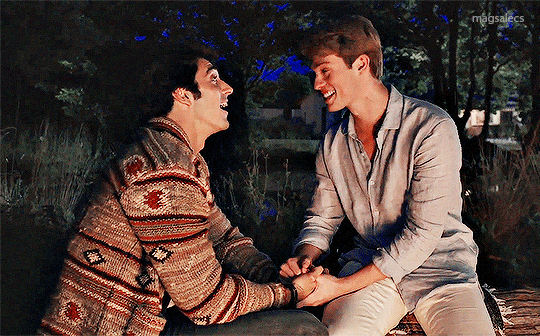
Shortly after having started an actual relationship with Henry, Alex plunges into his Texas campaign; he wants to use his influence as the president’s son to do good for other people. Henry’s philanthropic work and his overall influence inspire Alex to do more for his fellowmen, too.
When Henry panics and runs in the face of a declaration of love, Alex confronts him right away. Alex is willing to fight for his love. He „flies across an ocean and storms a f…ing palace“, in his words, to tell Henry he won’t give up on him.
As they say goodbye at the airport both gift one another what means most to them - ring and key. Alex until then never took his key chain off, not even when he was swimming or having sex. Alex’s last virtue is patience, yet he is willing to wait.
In the end the shy, introverted Henry says, “I will no longer be the prince of shame and secrets” finally confronting his worst fear, that his subjects may no longer like him.
Which is where we reach the bottom line.
„Real love“ is not defined by how deep, desperate and or romantic your feelings are.
Real love makes you a better, stronger and more mature person.
Red, White and Royal Blue is an actual, real and inspiring love story. Call Me by Your Name is a slap in the face.
#movie essay#rwrb#call me by your name#film analysis#relationships#same-sex#luca guadagnino#james ivory#thimothee chalamet#armie hammer#matthew lopez#casey mcquiston#taylor zakhar perez#nicholas galitzine#movie review#movie comparison#manipulation#narcissisim#dysfunctional relationship#cmbyn#psychology#romantic love#mental health#andré aciman#toxic relationship#romcom#red white and royal blue#emotional abuse#gay romance#firstprince
33 notes
·
View notes
Text
I Have Become Death, the Destroyer of Worlds
(Spoilers for Oppenheimer)
The original 1954 Godzilla can best be described as an anti-nuclear war film...that just happens to have a giant monster in it.
When you get right down to it, Godzilla himself was originally a big metaphor for the atom or hydrogen bomb. A big, unstoppable harbinger of death that once unleashed, it's only a matter of time before destruction follows. And you have to remember, it was made by victims of the Hiroshima and Nagasaki bombings not even a decade after. So any allusions to those attacks are pretty deliberate on their choice. You cannot simply separate Godzilla from the fires that birthed him.
Just like how you can't simply separate J. Robert Oppenheimer from the atrocities his weapons wrecked.

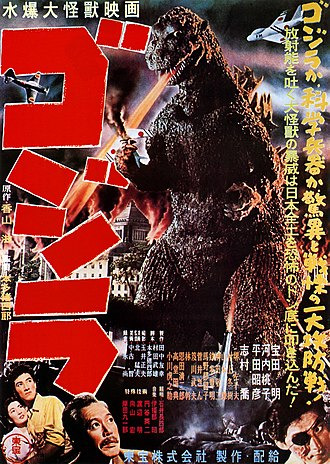
It's become kind of a trend with movie goers to frame Oppenheimer as a pseudo prequel to the Godzilla series. Particularly with the announcement by Toho of Godzilla Minus Zero later this year which deals with the immediate aftermath of the bombings which sounds like a natural continuation of the events of Oppenheimer. Course there's the obvious difference between a biopic and a sci-fi monster movie.
But remember how I mentioned that the original Godzilla was an anti-nuclear war film that happened to have a giant monster? Cause in many ways, that logic does apply here. And as a result, both films do carry a lot of the same themes and tone despite being released over 50 years apart.
For one, there's a sense of dread with both films in regards to the bombings. With Oppenheimer, it's a feeling of unease as the USA pushes for the continuation of the Manhattan Project despite the surrendering of the Nazis. It was always there, but it increases the closer we get to the bombing, such as when Oppenheimer and his staff grow increasingly nervous to the testing, the patriotic fervor that takes over when it goes well, and the shot of the Fat Man and Little Boy being carted of with Oppenheimer and Teller contemplating whether the bombing will truly bring world peace.
Same thing with Godzilla. We have an overpowering sense of dread as the existence of a huge, unstoppable monster begins to dawn on everyone. How nothing seems to work against it and the creeping horror of it coming closer and closer to Japan without any viable solution being found. With Oppenheimer, we know the end story even if the characters don't, and the anticipation comes from the knowledge of the carnage that their actions will bring being at contrast with what's seen on screen. In Godzilla, the dread comes from being the recipient of that horror, and the characters scrambling to find any sort of solution in the face of unrelenting fury.
It comes to a head with the final scenes of the film, with Oppenheimer and Einstein grimly wondering if the invention of the atom bomb might've just spelled the doom for the entire planet, while Dr. Yamane monologuing about how chances are there's another Godzilla out waiting to be awakened by more nuclear testing. It's that sort of apocalyptic dread which binds the two films together, with the different perspectives allowing two different approaches to the same anti-nuclear warfare conclusion. Both from the people who made the bomb, and the people who were bombed.
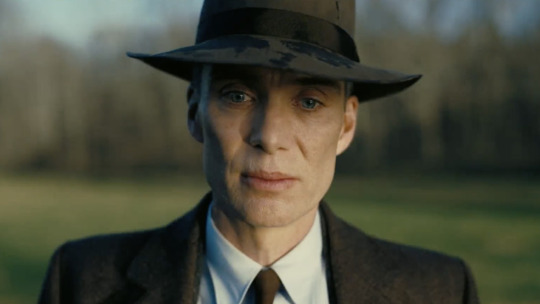
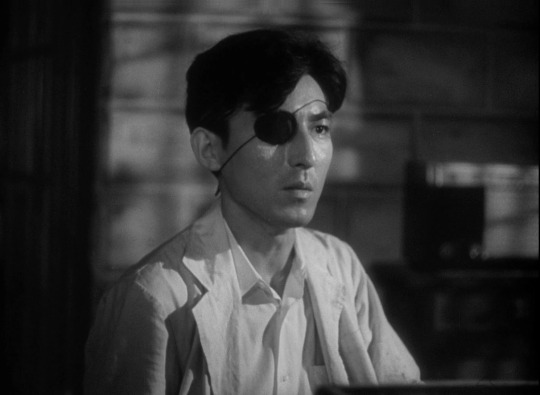
And the similarities don't end there. We do get a parallel with Oppenheimer and the fictional character of Dr. Serizawa, which perfectly demonstrates the sort of differential approaches both films take. Both view their respective forces (the atom bomb or the Oxygen Destroyer) as having the potential to do so much good, not necessarily for warfare but more as an energy source for the betterment of mankind.
The difference is how both are exposed to World War II. Oppenheimer is distant, never being on the frontlines and only hearing about Hitler's death via the news. As a result (and part of an overarching character flaw), he never really considers the ramifications of building an atomic bomb. He's uneasy with it, but he'll try to justify himself by saying it saved the US a costly invasion and the bombing scaring the rest of the world off from even attempting to replicate his invention (it didn't, much to his horror). Serizawa was a soldier for the Japanese army before becoming a scientist. He's absolutely horrified by his creation, knowing for a damn fact that people will use it for a weapon, that it could possibly cause a devastating arms race, and is determined to keep it under wraps until he can find a nondestructive use for it. He only uses it to destroy Godzilla when the threat of the latter is undeniable, but even then takes his own life lest he risk his knowledge being used to create another one.
Both characters came to the same conclusion: Oppenheimer realizing he may have just doomed the world far too late and Serizawa being wracked with fear of what would happen if the Oxygen Destroyer was deployed too liberally. Again, it's the difference between the two that highlights how each film handles the same message. One only realizes what he's created until it's far too late, the other is filled with dread by the inevitability of that creation being used for lethal purposes.
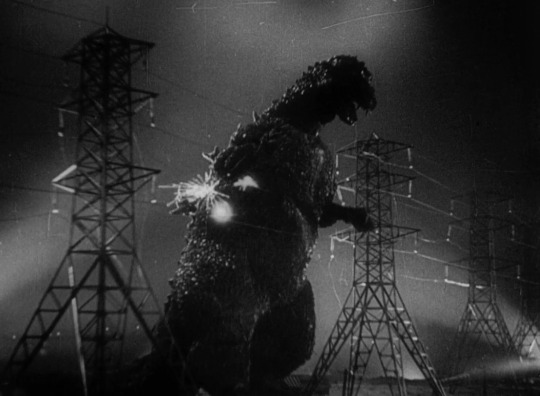
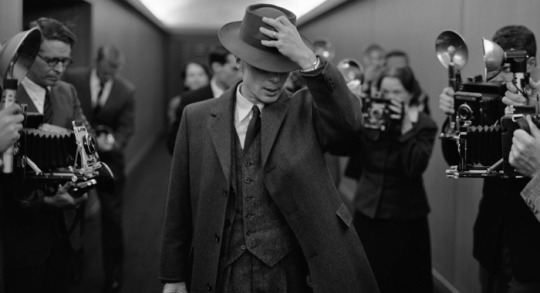
So in many ways...yeah. Oppenheimer can be seen as a prequel to Godzilla, and both can be viewed as companion pieces towards one another. Of course, one ultimately still is a giant monster film, the other a historical biopic. But when the tones are so similar and themes so consistent, it's quite telling that you can easily see the two as being two sides of the same coin.
After all, the original Godzilla was an anti-nuclear war film that features a giant monster. Oppenheimer is that same premise but without the monster and from the opposite perspective. Yet both share the same apocalyptic message.
#godzilla#gojira#godzilla 1954#godzilla meta#oppenheimer#oppenheimer 2023#oppenheimer movie#oppenheimer spoilers#giant monsters#kaiju#movie comparison
70 notes
·
View notes
Text
okay, so:
Edward Scissorhands - CultClassic Weird
Lisa Frankenstein - Kitchy Weird
(i like both, both are fine🤠👍👍)
#edward scissorhands#lisa frankenstein#movie comparison#very light don't come after me#i litteraly don't care that much#fr#both are cute aestheticly and have underlayer commentary but let's stay focused on the overall feel good efect and sillines#like chill
12 notes
·
View notes
Text

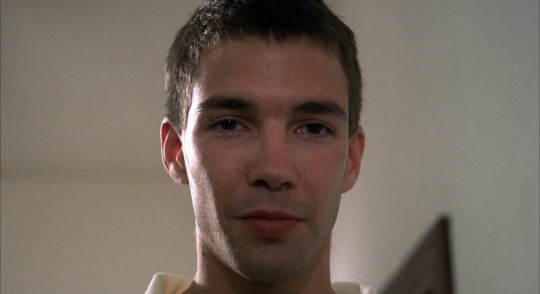
jurassic park (steven spielberg, 1993)
funny games (michael haneke, 1997)
considering how funny games criticizes gratuitous violence in movies and how haneke's vocally not a fan of some of spielberg's stylistic choices (and also the way peter clenches his jaw here reminds me of how the velociraptor does it) - a part of me wants to believe that this was intentional
14 notes
·
View notes
Text
Mona Lisa Smile (2003) is the female version of Dead Poets Society (1989) and they’re both so good I would be so glad to have a conversation about this with someone
#mona lisa smile#dead poets society#julia roberts#robin williams#movie comparison#I love both movies#although I love Mona Lisa smile just a little bit more
18 notes
·
View notes
Text


I just watched the adaptation for Red White and Royal Blue and I have a few points that I want to cover.
The smiles, the chemistry and the touch felt real, present, and exciting. Other movies or shows where gay characters are portrayed with full on straight actors, like Love, Simon, the interpretation of queerness and sexual chemistry was completely lacking and forced to the point of awkwardness. However, in this movie, I could see the passion in their interaction through their performance.

The story was modified so much, but they kept most of Henry’s and Alex’s history intact. I understand and appreciate them keeping their story as close to the original material as they did although I was missing some of their comedy banter which happen too fast and too light to fully understand the “enemies to lovers” kind of trope. For someone who didn’t read the book, my fiancé, he got lost into their texting showing as if they where together and then Henry disappearing, but since those interactions didn’t last long, he recovered almost immediately.
The elimination of characters like Alex’s sister and Henry’s mother, Raphael Luna and his story, was a blow to my expectations. Also the minimization of Alex’s and his friend story and his full on sexual crisis was important to understand Alex’s struggles and process of defining his identity was a huge miss in my opinion. Nora was an amalgamation of June’a character and Nora’s real character that took away part of the joy of having the fabulous White House trio.
Some green screen effects where notorios and some interactions were mild, like the change of the queen for a King, I enjoyed the story enough because I was here for their queer love, the Stable Scenes and the Paris scenes because at the end, we will always have Paris. 🩷
#red white and royal blue#red white royal blue movie#prime video#movie adaptation#bookworm#book blog#blogger#movie opinions#movie review#movie based on a book#movie comparison#movie critique#gay media#queer media#gay representation#rwrbedit#rwrb book#rwrb#taylor zakhar perez#nicholas galitzine#alex claremont diaz#henry fox mountchristen windsor
13 notes
·
View notes
Text
#west side story#west side story 1961#west side story 2021#movie comparison#tony x maria#natalie wood#richard beymer#rachel zegler#ansel elgort#robert wise#jerome robbins#steven spielberg#movie polls#1960s movies#old hollywood#classic cinema#classic film#old movies#vintage movies#musical film
2 notes
·
View notes
Text
Hulk vs The Incredible Hulk
It was a surprise for me at the time to actually see a cartoon character like this be made into film, so I wouldn't mind going to check it out. It does bring back the good ol' days of watching the cartoon series and reading the comics, and also the good ol' days where I would occasionally see the really OLD TV series of Hulk that often rerun on certain times in TV, especially during the transformation when they often focus only on the eye as he transforms. LOL
Here I'll be writing the two Hulk movies I've watched:
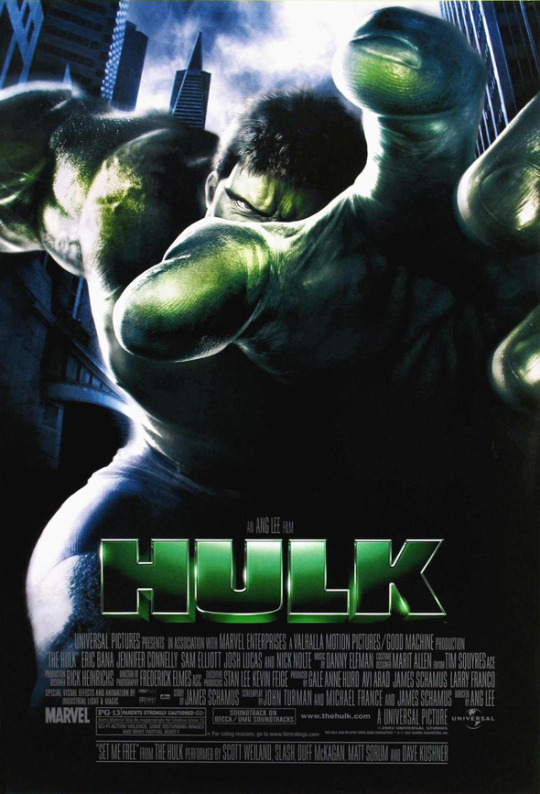
One by Ang Lee in 2003...

...and one as a reboot by Louis Leterrier in 2008.
In comparison, the Louis version is probably much better than the Ang Lee version. While Louis version was closer to the original theme of the comic, Ang Lee's version is more of a self-satisfaction kind of re-imagining of the cartoon character. Though I don't mind the humour and the cuteness of the Beauty and the Beast phenomenon portrayed by Ang Lee version (seriously, the way Hulk carries Betty was very cute, almost reminds me of King Kong), it wasn't really as good as the authenticity of what Louis had portrayed in his movie (and I am a sucker for authenticity and following the theme of the original).
Though the ending for Louis version was probably a little bit...well, too normal an ending for me. If they had used Ang Lee's ending for Louis' version, maybe it would've been nicer. Coz I kinda like the "You don't like me when I'm angry" ending, sounds more of the WOW factor.
In the end, overall, I think I would probably favour Louis version than Ang Lee version.
2 notes
·
View notes
Photo
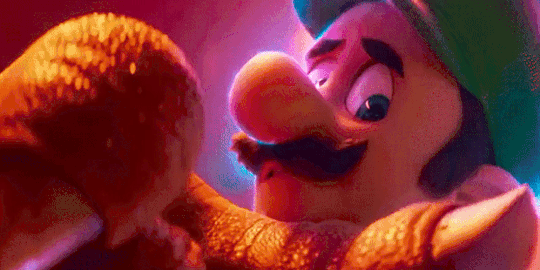
21/05/23 edit: heres the full gifset
#shigeru miyamoto approved this :V#okay so now i gotta do a bowigi gifset once the movie comes out#what else...#1. peach gifset cause shes the cutest#2. game-movie comparisons still hoping we get a paper mario shoutout#3. mario and luigi being brothers in movie and other games#4. and now bowuigi apparently jdhkfhsjhk#s.og#s.gif#c#m#smb#mario movie#the super mario bros movie#nintendo#bowser#luigi#bowuigi#nintendoedit#edit: this is getting way much more attention that anticipated jdsfdshfdks#i just went back to the trailer and i missed the shy guys doing the head tilt thing#if this passes 5k and reblogging that addition#second edit: 50k notes later.... insane :v#anyways i linked the full-ish gifset#tumblr staff please increase the max gif size to 15mb. just do that delete tumblr live and do that please
56K notes
·
View notes
Text
GUARDIANS 3 AND DEADPOOL 2 ARE THE SAME MOVIE. (spoilers for both ahead, but for deadpool 2 it's been like 5 years I shouldn't have to warn you)
A TEAM (except in Deadpool 2's case it's newly formed) TRIES TO SAVE AN ANGRY SHORT DUDE, END UP SAVING A BUNCH OF ORPHANS FROM AN EVIL, EVIL GUY, ONE OF THEM (almost) DIES (in guardians 3 it's rocket, in deadpool 2 it's deadpool) AND SEES THE ONE(s) THEY WANT TO SEE MORE THAN ANYTHING THEY TELL THEM IT'S NOT THEIR TIME THEY COME BACK TO LIFE AND BAM NEW FOUND FAMILY. except deadpool 2 has some (hilarious) time travel shit
1 note
·
View note
Text
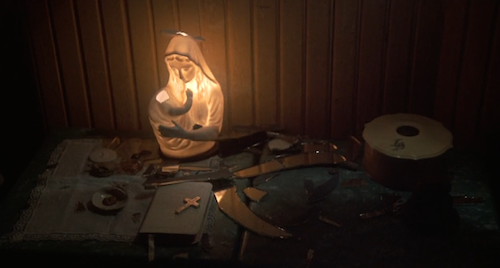
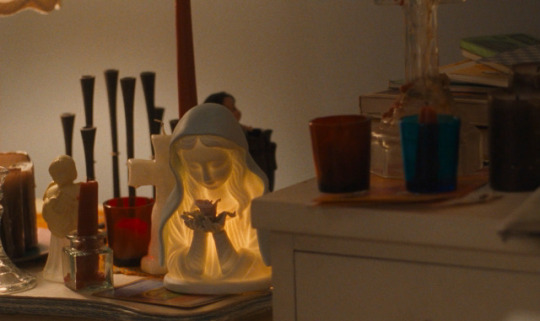
Carrie (1976) / The Virgin Suicides (1999)
#carrie#carrie 1976#stephen king#brian de palma#horror#the virgin suicides#sofia coppola#jeffrey eugenides#90s#70s#movie#film#parallels#comparatives#comparison#sissy spacek#piper laurie#kristen dunst#kathleen turner#virgin mary
6K notes
·
View notes
Text
FNAF SPOILERS! SCROLL! TALKING ABOUT THE SPRINGLOCK SCENE!
i’ve seen so many people discussing the springlock scene in both negative and positive ways and i think it brings up really cool points about how matthew played that scene and balanced fan expectations with his own characterisation.
i think the discussions around this movie have rlly exposed the disconnect between fanon and canon in fnaf, especially talking abt the core games in isolation, bc frankly in the game universe (ignoring the books) we get Very Little characterisation for William other than the obvious, but Matthew managed to add so much in the way he talks and his body language.
in the reveal scene, we see afton at arguably his peak. in his first scene, he comes off as somewhat demeaning and judgemental until he recognises mike’s name, at which point he seems to have this nervous energy, rushing to cover it up but stumbling slightly, his reaction to the tables being turned even slightly is massive.
this is a man who committed multiple mrdrs in essentially broad daylight, hid the bodies in the most obvious place, and still got away with it, and then kept the crime scene as a trophy of his actions, and an ongoing prison sentence for his victims. he has been in complete control for decades, and is confident that he can deal with any kind of threat quickly. his confidence in his reveal is palpable
it changes when vanessa shoots him. the whole parallel with vanessa and the animatronics is hugely interesting too- how william refers to the animatronics almost endearingly as “kids” when he wants them to obey, how both vanny and the animatronics have an unearned loyalty to him, almost a pseudo-adoption through what he did to them, taking them from their parents and keeping them under his thumb, forever stuck as naive, forgiving, obedient children. vanessa breaking from that control shakes him, but the mask slips back into place almost immediately.
then, he’s outsmarted by the brother of one of his victims, and the child he planned to end next. his pseudo-children turn on him and he can no longer manipulate his appearance or shed his skin to escape. he explodes on them, and his language is incredibly telling that he is being dishonest.
he calls them small, trying to belittle them into submission, even though they are ten feet tall metal animatronics powered by rage. he is grasping at straws to regain control, and failing miserably.
finally, the springlocks go off. the locks in the movie look more like a ribcage, so the first two likely puncture his lungs. they’re slow, and painful, but he doesn’t scream or beg or sob. he grunts and groans, gritting his teeth and only letting out sounds of pain that sound almost involuntary. there is no way in hell he would visibly let himself show weakness or pain in front of these creatures that he believes he has control over. he isn’t brought to his knees until there are eight metal spikes embedded in his abdomen. he doesn’t let the mask fall for even a second, until he literally PUTS THE ACTUAL MASK ON and finally collapses. even then, he’s fighting for consciousness, twitching and writhing with no control over his body. william afton thrives on control, and his soul will not rest until he gets it back.
it’s why he keeps the pizzeria- he always comes back. he can’t help but return to the scene of the crime, putting on his old costume, continuing his killings. he revels in being a constant threat on the horizon. and now, he knows he is going to die, and he knows the suit will bring him back, and noone will be able to get rid of him then. so he puts the mask back on, and waits.
in terms of the sfx- they’re pretty accurate. with stab wounds, you need to leave the knife in the wound as long as possible for best chance of survival, as it stops the blood from escaping. in terms of the springlocks, there wouldn’t be copious amounts of blood as the locks are keeping the wounds filled- which is good because it means a slower, more painful death.
#fnaf#fnaf movie#eden rambles#william afton#matthew lillard#springtrap#five nights at freddy's#fnaf spoilers#idk i thought it was a great scene#ppl just need to manage their expectations of what fnaf 1 Actually Is in isolation#not the years of other media and fandom and lore and theory#we literally saw him get springlocked one time in 8 bit with no audio and four frames. how is this worse in comparison#wanna make another post talking abt how the film explores images vs the reality when you look deeper#specifically abby and her drawings/the drawings at freddys vs mike’s motivation being based on the images he sees in his dreams#and how it’s so perfect for fnaf 1 being a game almost entirely made of just scary images without actually exploring the reality#that these robots are Children and Scared and Lost#tldr the fort scene was necessary
3K notes
·
View notes
Text



#jedi taylor
#tswiftedit#taylorswiftedit#tswiftgif#taylor swift#the eras tour#eras tour#eras tour film#1989#blank space#*mine#*2023#*gifs#mine: eras tour#mine: 1989#1k#this is the most unserious post I've made in my life ASDKLFJAH#I simply had to this comparison has not left my mind for the past nine months !!#taylor listen I need you to cast my other glow stick wielding fave in your upcoming movie
1K notes
·
View notes